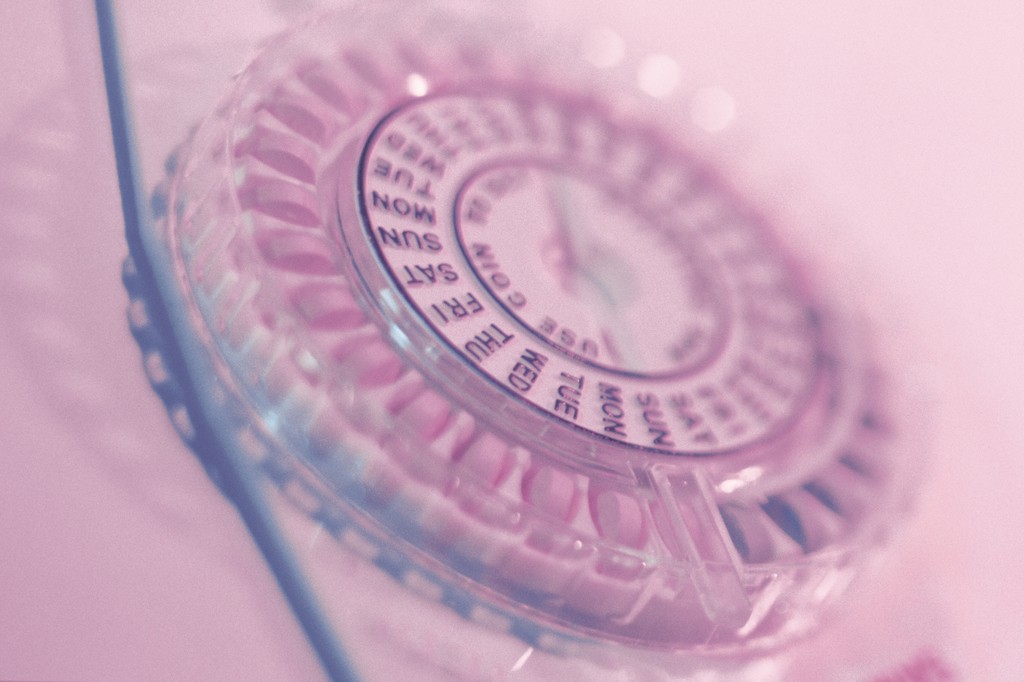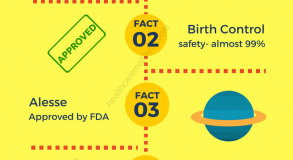Ortho Tri-Cyclen is a birth control happens to be one of the most popular choices. However, like all drugs, it does have a few side effects that you need to be wary about. However, first, you should understand what this oral medication actually does.
How Does Ortho Tri-Cyclen Work?
Ortho Tri-Cyclen is an oral contraceptive. This medication is made of a mixture of female hormones, norgestimate and ethynylestradiol. The pill is capable of preventing ovulation, which means eggs will not be released by the ovary to be fertilized.
Additionally, the medicine can also bring about changes in the uterine lining as well as the cervical mucus. This causes the sperm to find it more difficult to arrive at the uterus. At the same time, a fertilized egg will find it harder to become attached to the uterus. As a result of these effects, pregnancy can be prevented.

Common Side Effects
You may certainly consult a medical professional to get rid of these problems. In fact, you should do so if the problems continue to persist or if they cause concern. Here there are some of the common side effects of this oral contraceptive:
- cramps in the stomach or abdomen;
- blotchy spots on exposed skin;
- bloating;
- depression;
- breast enlargement;
- irritability;
- pain during intercourse;
- tiredness;
- vaginal itching or itching outside genitals;
- difficulty in concentrating;
- difficulty in wearing contact lenses;
- difficulty in sleeping.
The Serious Side Effects
Ortho Tri-Cyclen can also have a number of serious side effects although some of them are rare. Nonetheless, it is important that you seek medical help immediately when you notice one or more of the following symptoms. You should also stop using the oral contraceptive immediately.
- allergic Reactions: swelling of throat, face, lips or tongue, difficulty in breathing, hives;
- symptoms of Blood Clot in Lungs: Sudden cough, pain in the chest, rapid breathing, wheezing, and coughing up blood;
- symptoms of Blood Clot in Leg: redness, warmth, swelling or pain in one leg or both of them;
- symptoms of a Stroke: severe headache that occurs suddenly, slurred speech, problems with balance or vision or sudden weakness or numbness especially when it occurs on one side of your body;
- symptoms of Heart Attack: pressure or pain on the chest, pain radiating to your shoulder or jaw, sweating or nausea (read more);
- problems in the Liver: jaundice, nausea, feeling tired, dark urine, loss of appetite, itching, or pain in the upper stomach;
- symptoms of Depression: feeling of tiredness, mood, changes weakness, or sleep problems;
- changes in the severity and pattern of the migraine headaches;
- lump in the breast;
- swelling in the feet, ankles or hands.
Interactions
Ortho Tri-Cyclen can interact with a range of other drugs. These interactions can cause the medication to become less effective. This can increases the chances of becoming pregnant. Contact your doctor to find out if the medicines you are using can interact with this oral contraceptive.
Contraindications
Some of the other conditions in which you should not take this oral contraceptive are given below:
- heart disease such as uncontrolled heart valve disorder or coronary artery disease;
- history of heart attack;
- high blood pressure that is uncontrolled or untreated;
- pain in the chest;
- problems with blood circulation, kidneys or eyes caused by diabetes;
- unusual vaginal bleeding which a doctor has not checked;
- liver cancer;
- history of cancer related to hormones including uterine cancer or breast cancer;
- history of jaundice brought on by birth control pills or pregnancy;
- migraine headaches that are severe.

This medication should not be used if you are already pregnant. Instead, you must stop using it and contact your doctor as soon as you discover that you are pregnant. You should also do the same if you have missed two menstrual periods consecutively. You must avoid using Ortho Tri-Cyclen for at least 4 weeks after you have delivered a baby.
You should contact your doctor if you are suffering from health conditions such as heart, kidney or liver disease, depression or diabetes. This will enable you to remain safe. After all, using the medicine in spite of these conditions can lead to severe complications.



